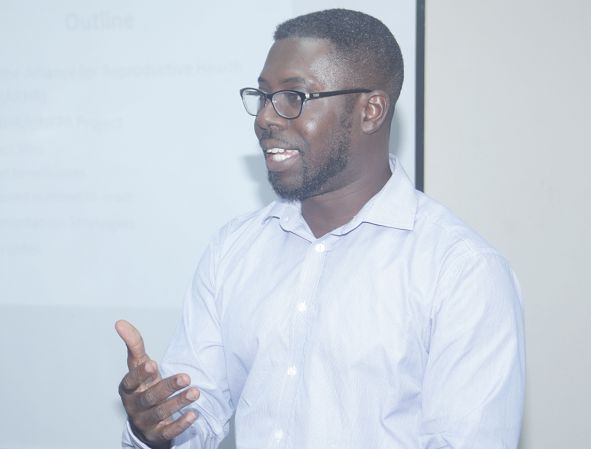
Group launches programme on adolescent health -Ghana News
The Programmes Manager of Alliance for Reproductive Health Rights (ARHR), a Non-Governmental Organisation (NGO), Mr Nii Ankonu Sarpei, has re-stated the importance of adolescent reproductive health education, as a step to provide the framework within which health provision and other related interventions for adolescents and young people, would be coordinated and implemented.
He said some young people, especially girls, grew from childhood into adolescence with little knowledge about adolescent reproductive health rights, leaving them in an unconducive environment that made some girls fall prey to “sex hungry men” who took advantage of them.
Mr Sarpei stated that at the launch of a project by ARHR, a women, children and adolescences' Health Advocacy Group, to empower adolescent girls, particularly, those out of school.
Improved access to information
The project, dubbed ‘Empowering adolescent girls through improved access to information on child sexual exploit (CSE) and gender-responsive sexual and reproductive health services’, is aimed at educating out-of-school female adolescents between the ages of 10 and 19, to provide them with platforms to participate in health discussions on problems affecting them.
Mr Sarpeie explained that the NGO would partner the Ghana Health Service (GHS) to implement the project, which is to be funded by the United Nations Population Fund (UNFPA).
It will be implemented in Nzema East and Komenda-Edina-Eguafo Abrem municipalities and the Ashiedu Keteke sub-District of the Accra Metropolitan Assembly to help address the issues of teenage pregnancy, which is considered a major challenge confronting out-of-school girls.
He said the NGO would educate the girls on their reproductive health, while those with infections would be referred to health institutions under the GHS for treatment.
He said the project was targeting disadvantaged girls, particularly those with disabilities in the selected communities, adding that “girls are the most vulnerable in the society.”
Strategies
On strategies to be employed in implementing the project, Mr Sarpei said they would use peer networking meetings in the beneficiary districts to invite more girls to join the programme.
He said they were also going to organise adolescent health fairs and sporting activities and what he described as “edutainment” to implement the project. He explained that the edutainment would be used to take the girls through entertainment such as drama sessions and movie shows.
He also said they would establish workshops to empower girls with disabilities with skills training and also equipped them with information relating to their reproductive health and also linked them up with sexual and reproductive health and rights services.
The Programmes Development Manager for ARHR, Ms Joyce Ami Amedoe, said the project was targeting out-of-school children, because of their disadvantaged positions.
